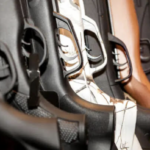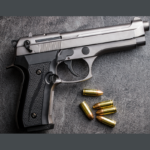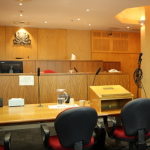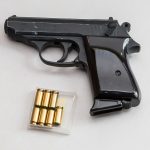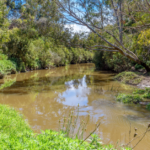The Offence of Intent to Murder in New South Wales
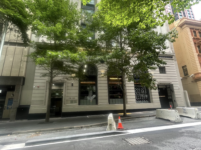
A shooting at the offices of a Sydney law firm has led to the arrest of a 79-year old man, who has been charged with intent to murder.
The man opened fire at the offices of Van Cooney Lawyers on Castlereagh Street in Sydney’s Central Business District, shooting the firm’s 77-year old principal Van Cooney in the groin area.
The lawyer’s employees bravely intervened and restrained the alleged shooter until the arrival of police.
It is alleged the assailant was holding a pistol while carrying a bag containing a sawn off M1 carbine semi-automatic rifle. Around 40 police officers attended the scene, effectively shutting down the area.
The alleged gunman has additionally been charged with two counts each of causing danger with a firearm, unauthorised use or possession of a pistol or prohibited firearm and acquiring a pistol while subject to firearms prohibition order.
He was refused bail in Downing Centre Local Court today.
Police investigations are continuing.
The offence of intent to murder
Committing an act upon a person with the intention of murdering them – an offence also known as intent to murder or attempted murder – is a crime contained in section 27 of the Crimes Act 1900 (NSW) which carries a maximum penalty of 25 years in prison.
To establish the offence, the prosecution must prove beyond reasonable doubt that:
- You administered poison or any other destructive thing to a person, or you otherwise caused such a substance to be taken by the person, or you wounded or caused grievous bodily harm to a person, and
- You intended by doing so to murder the person.
‘Wound’ means to break both layers of the skin being the dermis and epidermis.
‘Grievous bodily harm’ means ‘really serious harm’ it includes, but is not limited to:
- Any permanent or serious disfigurement,
- The destruction of a foetus, other than by a medical procedure, and
- Any grievous bodily disease.
The offence carries a ‘standard non parole period’ of 10 years in prison which is a guidepost or reference point for the sentencing judge when determining the minimum term you must spend in prison before being eligible to apply for release on parole.
The offence of causing danger with a firearm
Causing danger with a firearm is an offence under section 93G of the Crimes Act 1900, which carries a maximum penalty of 10 years in prison.
To establish the offence, the prosecution must prove beyond reasonable doubt that:
- You possessed a loaded firearm or loaded spear gun, and
- You possessed it in a public place or in any other place so as to endanger the life of any other person, or you fired the firearm or spear gun in or near a public place, or you carried or fired the firearm or spear gun in a manner likely to injure, or endanger the safety of yourself or any other person or property, or with disregard for the safety of yourself or any other person.
Under this section, a firearm is to be regarded as being loaded if there is ammunition in its
chamber or barrel, or in any magazine or other device which is in such a position that the ammunition can be fitted into its chamber or barrel by operation of some other part of the firearm.
A spear gun is to be regarded as being loaded if a spear, or an instrument or thing similar to a spear, is fitted to it.
The offence of unauthorised use or possession of a pistol or prohibited firearm
Unauthorised use or possession of a pistol or prohibited firearm is an offence under section 7 of the Act which carries a maximum penalty of 14 years in prison.
To establish the offence, the prosecution must prove beyond reasonable doubt that:
- You possessed or used a pistol or prohibited firearm, and
- You were not authorised to do so by a permit or licence.
A ‘pistol’ is defined as a firearm that:
- is reasonably capable of being raised and fired by one hand, and
- does not exceed the dimensions prescribed by the regulations.
Schedule 1 of the Act contains a long list of ‘prohibit firearms’ which include:
- Machine guns, sub-machine guns and other automatic weapons capable of shooting bullets in rapid succession,
- Self-loading shotguns, rim-fire and centre fire rifles,
- Firearms capable of discharging liquid, powder, gas, chemicals, flares or dye,
- Canons and powerheads, and
- Firearms disguised as other items, such as walking sticks.
The offence of acquiring a pistol-subject to firearms prohibition order
A firearms prohibition order is a legal order made by the Police Commissioner to restrict a person’s ability to possess and use firearms and firearm parts.
The order gives police broad powers to enter, search and to detain a person where there is a suspicion a firearm may in the person’s possession or at a premises they are occupying.
It is an offence carrying a maximum penalty of 14 years in prison for a person who is subject to such to acquire, possess or use a firearm, firearm parts or ammunition.
Certain criminal convictions, known as ‘prescribed offences’ automatically disqualify a person from owning a firearm, and these include:
- Sexual offences,
- Violent offences,
- Offences related to prohibited drugs,
- Robbery,
- Terrorism-related offences,
- Offences relating to organised crime and criminal groups,
- Firearms or weapons offences, and
- Fraud, dishonesty and stealing offences.
An apprehended violence order against a person will also preclude them from being eligible to own or possess a firearm.
Legal defences
Legal defences apply to all of the outlined offences, and these defences include self-defence, duress and necessity.
In the event you are able to raise evidence of one or more of these legal defences, the onus then shifts to the prosecution to prove beyond reasonable doubt that the defence does not apply.
You are entitled to an acquittal if the prosecution is unable to do this.
Going to court?
If you are going to court for a criminal offence, such as a firearms-related offence, call Sydney Criminal Lawyers anytime on (02) 9261 8881 to arrange a free first conference with an experienced lawyer who will assess your case, advise you of your options and the best way forward, and fight for the optimal outcome.
Receive all of our articles weekly
Related Articles
RELATED LEGISLATION
- Section 27 Crimes Act 1900 | Acts Done to the Person with Intent to Murder
- Section 93G Crimes Act 1900 | Causing Danger with Firearm or Spear Gun
- Section 7 Firearms Act 1996 | Offence of Unauthorised Possession or Use of Pistols or Prohibited Firearms
- Section 18(1)(b) Crimes Act 1900 | Manslaughter
- Section 18 Crimes Act 1900 | Murder and Manslaughter
- Section 19A Crimes Act 1900 | Punishment for Murder



